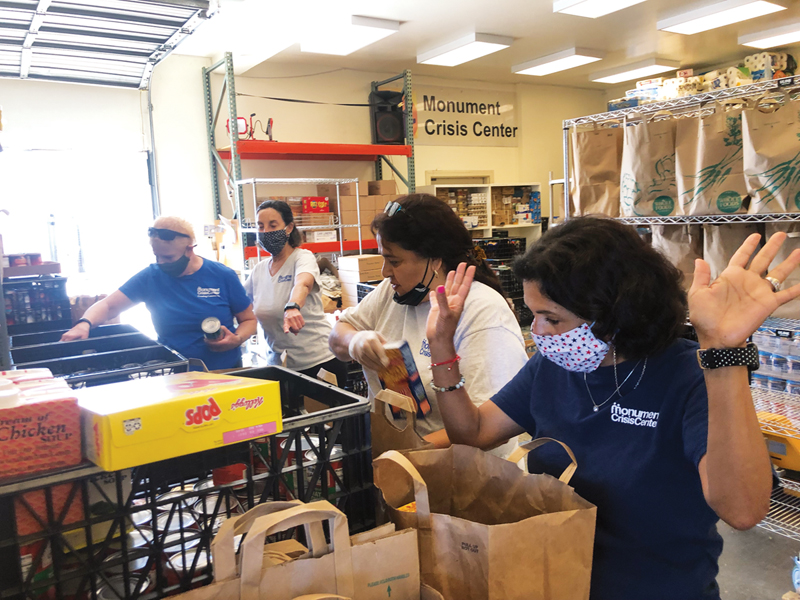Crisis Center launches capital campaign to purchase building

CONCORD, CA — After 17 years of providing assistance to thousands of residents in need, the Monument Crisis Center is seeking some assistance of its own: donations to help the nonprofit organization purchase the Concord building that has been its home for the past seven years.
The center, located at 1990 Market St. and before that on Monument Boulevard, has helped more than 15,000 low-income or at-risk families with food, education, employment and social services since it formed in 2003.
Executive director Sandra Scherer explained recently that the initial rental agreement for the 12,600 sq. ft., two-story building tucked behind the Concord Park & Shop center did not include a purchase option. The opportunity unexpectedly emerged in early spring, and now the center has launched MCC@Home – a capital campaign to raise money for the purchase.
“The hope was that we would someday be able to buy this and own our building. For us to be able to be here for the long term is a dream come true,” Scherer said.
According to Scherer, the effort has already resulted in “individual donations ranging from $5 to $100,000,” as well as larger contributions from community and family foundations.
Variety of free services
In 2013, the staff oversaw a renovation of the building, previously a furniture store, that created a 2,000 sq. ft. pantry; meeting rooms; a kitchen for training courses and use by the center; space for activities, education courses, tutoring and study rooms; and children’s reading rooms. A community campaign was successful in funding the renovation, she said.
Tuesday, July 6, was business-as-usual for food distribution at the bustling center. A staff member warmly greeted people on the cool breezy morning, alternating seamlessly between Spanish and English in welcoming them to the multi-service assistance center. A steadily moving line snaked past colorful signs taped to the building’s windows announcing free services such as wi-fi hotspots, unemployment resources and income tax preparation to the food distribution area.
Alexis Stanley, the center’s community liaison coordinator for corporations, high schools and volunteer groups, joined the staff after graduating from San Francisco State and then working for about 10 years in local city, parks and recreation. She took a break from distributing food to share her insights into the impact of the center’s planned purchase of the building. “To know we are stable and more of a fixture allows for people to know we are here for good. It’s grounding,” said Stanley, who grew up in Concord and volunteered for the organization.
Increased need during the pandemic
Scherer remains in awe of the outpouring of support from local organizations, groups and individuals who have rallied behind the center in the past and present, especially at the start of the pandemic 16 months ago when families in need increased about 400 percent in one week.
On March 16, 2020, the day before local and statewide shelter-in-place orders, the center served 84 families for food distribution. By the end of the week, representatives of about 325 families arrived for food and support.
Although the center did not allow volunteers onsite during the height of the pandemic, Scherer relishes the fact that the volunteer spirit continued with neighborhoods, faith groups and individual donation drives. A local church held a drive-through donation event and then delivered “truck after truck after truck,” a total of 10,000 pounds of food.
“It would send shivers down your spine,” she said of the community’s outpouring of support. “We know and value our volunteers – we’re built on volunteers.”
Reflecting on her 17 years with the center, Scherer added: “The biggest joy has been how people come together, an intergenerational volunteer effort including families with toddlers, high school and college students, neighbor helping neighbor.”
To support Monument Crisis Center’s MCC@Home campaign, go to monumentcrisiscenter.org/mcc-home. For more information on the organization, visit monumentcrisiscenter.org.
Related story/Update: Monument Crisis Center completes building purchase with help from state
